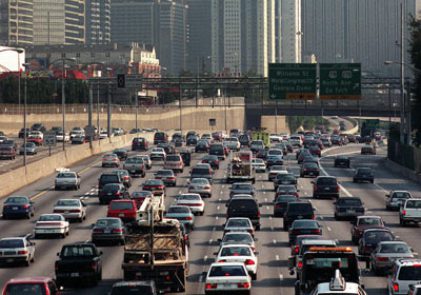When the Atlanta Braves announced their decision to move their stadium from downtown Atlanta to a highway nexus in suburban Cobb County this week, they cited transportation problems as part of the impetus. But it wasn't long before everyone started wondering if the new site, only marginally connected to the region's transit system, could actually handle the additional traffic on game days.

A major transit upgrade had been proposed for the Cumberland Mall area, where the new stadium will be located, but that project isn't on the table anymore. It was part of a transportation tax package that voters in the Atlanta region -- particularly suburban voters -- struck down just last year.
Now Joe Dendy, chairman of the county’s Republican Party, has revealed perhaps more about his attitudes regarding various modes of transportation -- and the people who ride them -- than he actually meant to. In a statement about the Braves' move to Cobb County, he said:
It is absolutely necessary the (transportation) solution is all about moving cars in and around Cobb and surrounding counties from our north and east where most Braves fans travel from, and not moving people into Cobb by rail from Atlanta. [Emphasis ours]
The Atlanta Journal Constitution's Jay Bookman heard an unuttered "those" before the word "people." He says Dendy's statement explains a lot about Atlanta:
That's from the chairman of the Republican Party in the state's wealthiest, most sophisticated GOP stronghold. If you want to know why the Atlanta region has trouble acting and thinking like a region, why we have abandoned mass transit options that every other major urban area in the country is pursuing, and why we have forfeited the economic dynamism that once made this city/region the envy of much of the nation, there you have it.
In the 2001 book, "Atlanta: Race, Class and Urban Expansion," Georgia Tech Professor Larry Keating argues that sprawling development patterns and meager transit investment in the Atlanta region has historically served to promote and reinforce racial segregation.
There may be a certain poetic justice in how this all plays out. Downtown Atlanta could very well be better off with something besides a gigantic sports stadium on the Turner Field site, while the Braves have chosen a future that apparently condemns all their fans to sitting in traffic, and Cobb County will be shelling out big bucks to make it happen.





